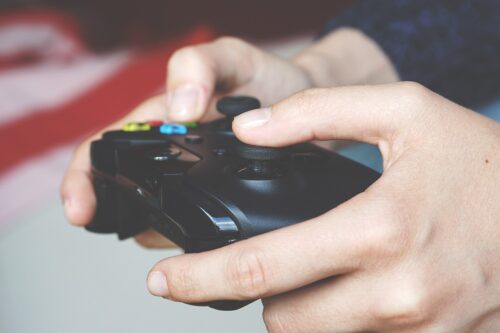Since the brain is constantly active—even while we sleep—exercising it to boost memory, attention span, or everyday health functioning should be a top concern. On the other hand, specific tasks can stimulate the brain in surprising ways, which may enhance imaginative thinking, memory, or cognitive performance. The positive effects of adding a few easy brainteasers to your everyday life are considerable.
Research suggests plenty of different approaches to improving cognitive ability, maintaining brain health, and promoting larger brain volume. You may do everyday tasks more quickly and easily by engaging with specific brain workouts that improve attention, memory, and concentration, keeping your brain sharp. The best approach is to remember these suggestions and maintain your healthy routine.
Now, let’s look at some physical and mental exercises to boost focus and memory.

Practicing Meditation
The general goal of meditation is to calmly and deliberately focus consciousness. Meditating can help the mind and the body in many ways, such as preserving the brain as it gets older, lowering harmful brain activity, and changing the amount of stimulation of certain important brain regions. Additionally, meditation lessens anxiety, which strengthens the parts of your brain linked to retention of information, focus, and self-awareness, as well as the brain regions related to emotional and psychological issues.
Completing Jigsaw Puzzles
Jigsaw puzzle completion stimulates observation, logic, mental articulation, and memory, making it a potentially beneficial method for sparing time. Additionally, solving puzzles strengthens the connections between neurons in the brain, increases mental clarity, and boosts dopamine production—a neurotransmitter that controls mood. When assembling a jigsaw puzzle, you must consider various parts and determine how they fit into the overall design. With this, your brain gets challenged and exercised terrifically.
Playing Memory Card Games
Memory-training games can help you become more focused, attentive, and proficient at solving problems. They can also improve your mood, boost your self-esteem, and lessen anxiety. Since it concentrates on remembering and memorizing specific patterns, it is excellent for brain development. It’s an easy and enjoyable exercise that stimulates the parts of the brain linked to memory and identification. You could try gin rummy, poker, solitaire, hearts, bridge, and crazy eights, among other fantastic card games.

Playing Video Games
One hobby that can help you maintain your vision, hand-eye coordination, and fine motor abilities is playing video games. It enhances cognitive versatility, problem-solving abilities, imaginative thinking, and concentration. Playing video games can help you learn academic material and build steady cognitive abilities more easily. It’s important to remember that only some video games can be played. To prevent mental health problems like anxiety and depression from developing, one must stay away from graphic or violent games. These conditions can even affect your brain structure.
Building Vocabulary
Studying an additional language increases cognitive function and broadens one’s understanding. Research indicates that vocabulary development tasks involving listening, reading, writing, and speaking involve a multitude of areas of the brain. To improve communication in all its forms, these are all necessary. Using mnemonic devices, word games, flashcards, and reading regularly are some methods to increase your vocabulary. Additionally, you can utilize a dictionary or thesaurus to pick up a new term or word a day and include it in your conversations, helping your brain stay healthy.
Listening To Music
Because it has rhyme, rhythm, and frequent alliteration, music stimulates both the left and right sides of the brain. As it links several brain regions, stimulation of both sides of the brain can optimize learning and enhance memory. The brain region that processes music is trained to become more perceptive and to visualize things more clearly. Compared to quiet, listening to upbeat music encourages the generation of more creative solutions. You can become more resilient, improve your memory, and feel happier when you listen to music.
Learning A Musical Instrument
Learning new and complex skills is good for the aging brain as well. Musical activities (like playing a musical instrument or taking piano or guitar lessons) showed particular promise for healthy brain aging. Learning or playing musical instruments also promotes positive effects on learning, memory, fine motor skills, and verbal and non-verbal reasoning. It also helps with the ability to retain and recall written and spoken information.
Using All Your Senses
Acquiring new and advanced abilities also benefits the developing brain.
It has been shown that engaging in musical activities, such as learning to play a musical instrument or attending piano or guitar classes, can promote the natural aging of the brain. Learning to play a musical instrument or picking one up has a positive impact on memory, fine motor abilities, verbal and nonverbal thinking, comprehension, and learning. It also facilitates the recollection and retention of both oral and written information.
Learning And Engaging In Hobbies
Acquiring a new ability is exciting and entertaining, but it could reinforce your brain’s neuropathways. The goal is to cognitively stimulate your brain as much as possible to aid with keeping your memories. Since they enhance the retention of information, you can take up hobbies like creating artwork, knitting, painting or drawing, stitching, car maintenance, guitar lessons, and perfecting your golf swing. Taking up a hobby or two can help you become more coordinated or agile, which helps you use your motor skills.

Journaling
Since keeping a journal compels you to concentrate on a single concept or topic, it has been demonstrated to enhance attention and memory. Writing by hand helps your brain translate information into neural pathways that support mental processing and information recall. Long-term goal achievement is facilitated by journaling, as it also sharpens your critical thinking abilities. You’re expressing ideas in written form, increasing your vocabulary, and actively using your brain when you write in a diary. It is also undeniably one of the most advantageous mental activities you can work on because writing or journaling has long been linked to the capacity to raise IQ and increase intellect.
Exercising Regularly
One of the most straightforward and effective methods to enhance memory, motor coordination, and mental performance is to engage in physical exercise on a daily basis. The amounts of dopamine and norepinephrine, levels in the brain are all raised by physical activity, and these chemicals have an impact on focus and attention. Frequent physical activity enhances cognitive abilities and aids in learning. Because it helps lessen anxiety and despair, exercise can help you experience emotional equilibrium. Engaging in consistent exercise can help lower the chance of an aging brain developing dementia and other forms of cognitive impairment or decline like Alzheimer’s disease. This is especially important for better brain health and cognitive aging for older adults.
Dancing
Your brain’s processing speed and memory increase when you dance or learn new dance steps. Specific brain function areas, including organizational skills, planning, and memory, are positively impacted. Not only does dancing improve fundamental movement skills, but it also taps multiple cognitive abilities and elements like rhythm, harmony, music, and social interaction. Better motor control, focus, problem-solving abilities, memory, and retention of information are all made possible by it. You can engage in many forms of dance instruction, such as salsa, tap, hip-hop, and modern, or try out Zumba or jazz exercises. You can also watch entertaining dance videos online.
Socializing
Socialization or interaction can boost brain health and increase memory, concentration, and attention span. Spending time with people from different backgrounds enhances your social and communication abilities and builds greater rapport and self-awareness. It could encourage a feeling of security, safety, and affiliation. Even when all you’re doing is having a good time and speaking, your brain is actively working. Enjoy the company of friends who mentally participate in recreational activities, and you’ll find that you will enjoy these brain-boosting benefits over time.
Engaging In Sports
Some sports require a lot of mental and physical energy. A variety of cognitive skills, including multitasking, sustained attention, planning, mental agility, and flexibility, are needed for some. Playing any sport helps you because it gives you the flexibility to quickly adjust to new circumstances. It increases focus and expedites the processing of information. You can try your hand at team sports, including basketball, volleyball, rugby, and hockey. Participating in these sports requires social interaction, which improves communication skills and focus which helps to activate brain training and activity.
Changing Habits
It’s good for cognitive health and development to break out of your regular routine. Mental degeneration might occur when you are overly accustomed to or stuck on the same task or routine every day. On the other hand, if you experiment with different approaches to the things you perform on a regular basis, you will be able to create new habits and learn to evaluate your activities. This small adjustment can have a big impact on better cognitive function and working memory since it uses mental resources, organizing, coordinating, focus, as well as retention to come up with new approaches to finish tasks.
Sleeping
Yes, sleeping between seven and eight hours a night may assist you in remembering things better and regaining your mental clarity. It helps connect earlier fresh memories and reinforce ones you’ve made throughout the day. Good sleep improves judgment, focus, imaginative thinking, problem-solving abilities, and emotional processing. Sleep lowers mental weariness, improves recall of information, helps keep your brain sharp, and regulates metabolism. Additionally, it helps with emotional problems like anxiety and depression brought on by stressful everyday encounters, promoting a healthy brain.
The Bottom Line
Regardless of age, paying attention to your brain health is one of the most beneficial things you have to do to enhance your mental agility, retention, concentration, and focus. Brain exercises are a great way to test your mental capacity, develop your cognitive abilities, and pick up some new and interesting knowledge in the process.